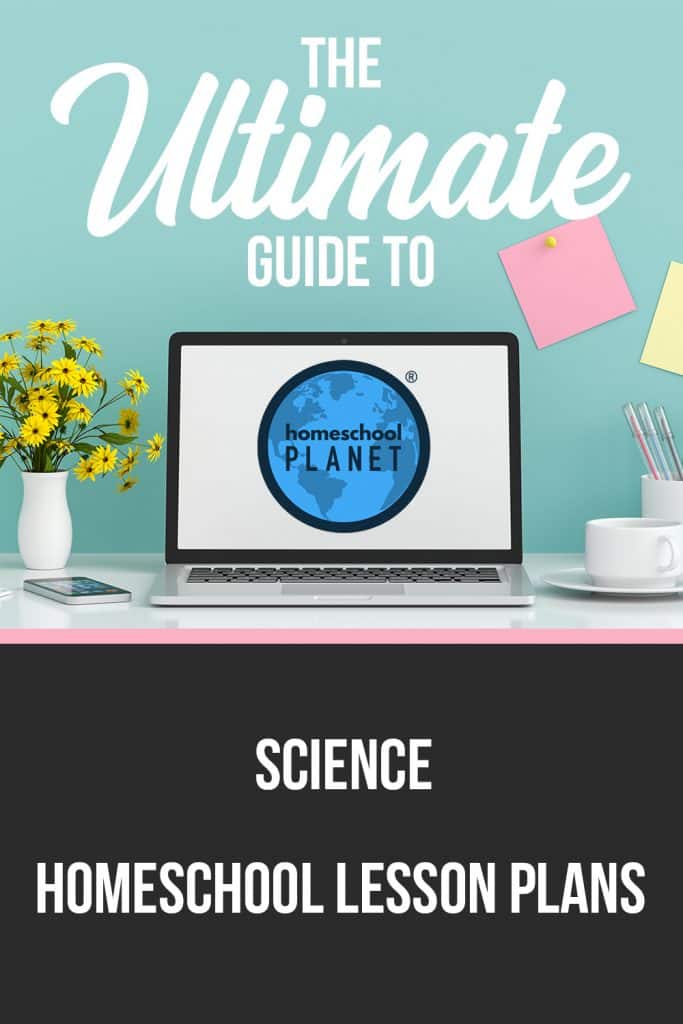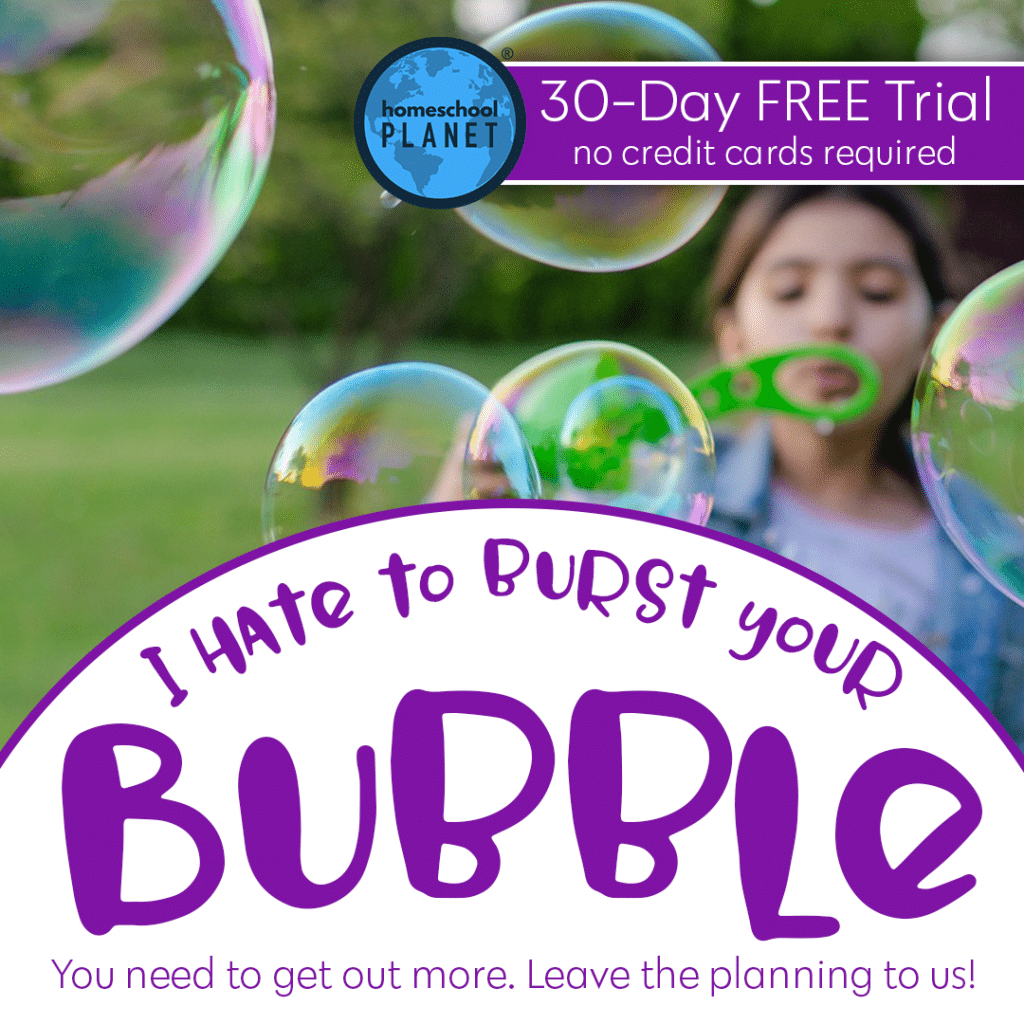Science Lesson Plans For Your Homeschool: A Complete Guide
I never considered myself much of a “science person,” until I started homeschooling my kids.
Suddenly, it felt like science was everywhere, and there were so many opportunities for learning.
My children were naturally curious about nature, seasons, weather, animals, space and more. What felt tricky for me was figuring out how to keep from bouncing from elephants to electricity to engineering without feeling like we were missing something important.
More and more STEM (Science, Technology, Engineering and Math) resources were becoming available for homeschoolers too – and I wanted to be sure we were covering all the bases. That meant finding a solid science curriculum, and careful planning to keep us all on track.

Choosing A Homeschool Science Curriculum
When looking at science curriculum programs, there are lots of factors to consider.
First, some families want a heavy emphasis on nature, including getting outside frequently, digging in the dirt or a tidepool and just possibly, dissecting owl pellets!
Other families want less nature, but still desire a hands-on approach to science that involves plenty of experiments.
And then, there are families that prefer reading good books, incorporating educational videos, and computer-based work (like coding).
Any of these options can help your homeschoolers build a solid science/STEM foundation.
And the best science curriculum is the one that meets your kids’ needs and your needs as a homeschool teacher.
To help you find a science curriculum that’s a good fit, ask yourself:
- Are we able to get out in nature frequently? Do we I/want to? (It’s OK if the answer is no.)
- How much time do I have to set up science experiments and gather supplies?
- How confident do I feel about teaching science? Would it help to use videos or other online resources?
- How comfortable am I with experiments/dissection, etc. How comfortable are my kids?
- Would it work for our family to learn science through a literature-based curriculum?
- How much do we want to prioritize technology as part of science learning? Are my kids at an age where they are able to work on computers?
- Do we have any older children or teens leaning toward careers in science, technology or engineering?
- What is our budget for science?
- Would it work well for us to do science lessons with multiple kids at once?
- Are we in a season where science needs to be open-and-go and not take a lot of advance prep or planning?
One of the biggest benefits of homeschooling is getting to make choices that work for your unique family.
So if a nature-based curriculum isn’t for you, or you or your kids don’t love the idea of kitchen table experiments – that’s OK.
The goal is to find a curriculum that you enjoy using and that engages your kids’ natural curiosity.
Lesson Planning Options for Science
Because science lessons can require a bit of extra prep work, some families choose to schedule less frequent, but longer science lessons.
Families who do a lot of nature-based science may even devote one day a week to getting out and hiking, natural journaling or collecting specimens.
Other homeschool families may embrace more of a Charlotte Mason approach to homeschooling science, keeping lessons short, but frequent.
It’s not just OK to create a homeschool schedule that works well for your family – it’s actually an important part of keeping homeschooling sustainable. That means your lesson planning system needs to be flexible to your family’s needs and goals.
Homeschool Planet’s online homeschool planner allows parents to create profiles for themselves and each of their children. It’s an all-in-one planning system that makes it easy to add lessons, online classes, to-do lists, work schedules and more.
Plus, many popular homeschool science programs available through Homeschool Planet’s Lesson Plan and Curriculum Marketplace and can be integrated seamlessly into your children’s profiles.
So whether you schedule science lessons for every day, once a week, or even want to plan occasional experiment days or nature days, it just takes a few clicks to set up science lesson plans for the whole year.
Science Lesson Plans For Your Homeschool Planet Planner
Take a look at all of the science lesson plans available to directly integrate with your Homeschool Planet Planner:
- Berean Builders
- ACSI Science
- Apologia Elementary Science
- Apologia 7th-12th Grade Science
- BJU Press Science
- Beautiful Feet Books Science
- Birds in Our Backyard
- Building Blocks of Science
- Christian Kids Explore Science
- Conceptual Academy Science
- DK Science Workbooks
- Devotional Biology
- Elevate Science
- Evan-Moor Daily Science
- Exploration Education
- Friendly Biology/Chemistry
- Focus on Science
- God’s Design for Science
- Khan Academy Science
- Let’s Talk Science
- Lifepac Science
- The Magic School Bus
- MasterBooks Science
- Mr. Q’s Science
- Nancy Larson Science
- Novare Science
- Pandia Press REAL Science Odyssey
- A Reason for Science
- Rod and Staff Science
- SEA Science
- SEA Science of Climate Change
- Science Detective from Critical Thinking Company
- Science Shepherd Science
- Spectrum Science
- Supercharged Science
- Thinkwell Science
There is a science option for every child and every family!
Computer Technology Lesson Plans
Lesson Planning With Homeschool Planet
Science can be a fun subject to learn with your kids, no matter what curriculum you choose. And Homeschool Planet’s online lesson planner makes it easy to break down lessons in a way that works best for your family.
Plus, you can try it for free!
Simply click here to get a free 30-day trial of Homeschool Planet’s online planning system.
Setup is quick and easy AND your free trial also allows you to choose one free lesson plan from Homeschool Planet’s Lesson Plan and Curriculum Marketplace, including lots of science options.

Homeschooling science can be such a fun learning experience for the whole family, so try Homeschool Planet’s online homeschool planner for free and start your family’s science journey today.

